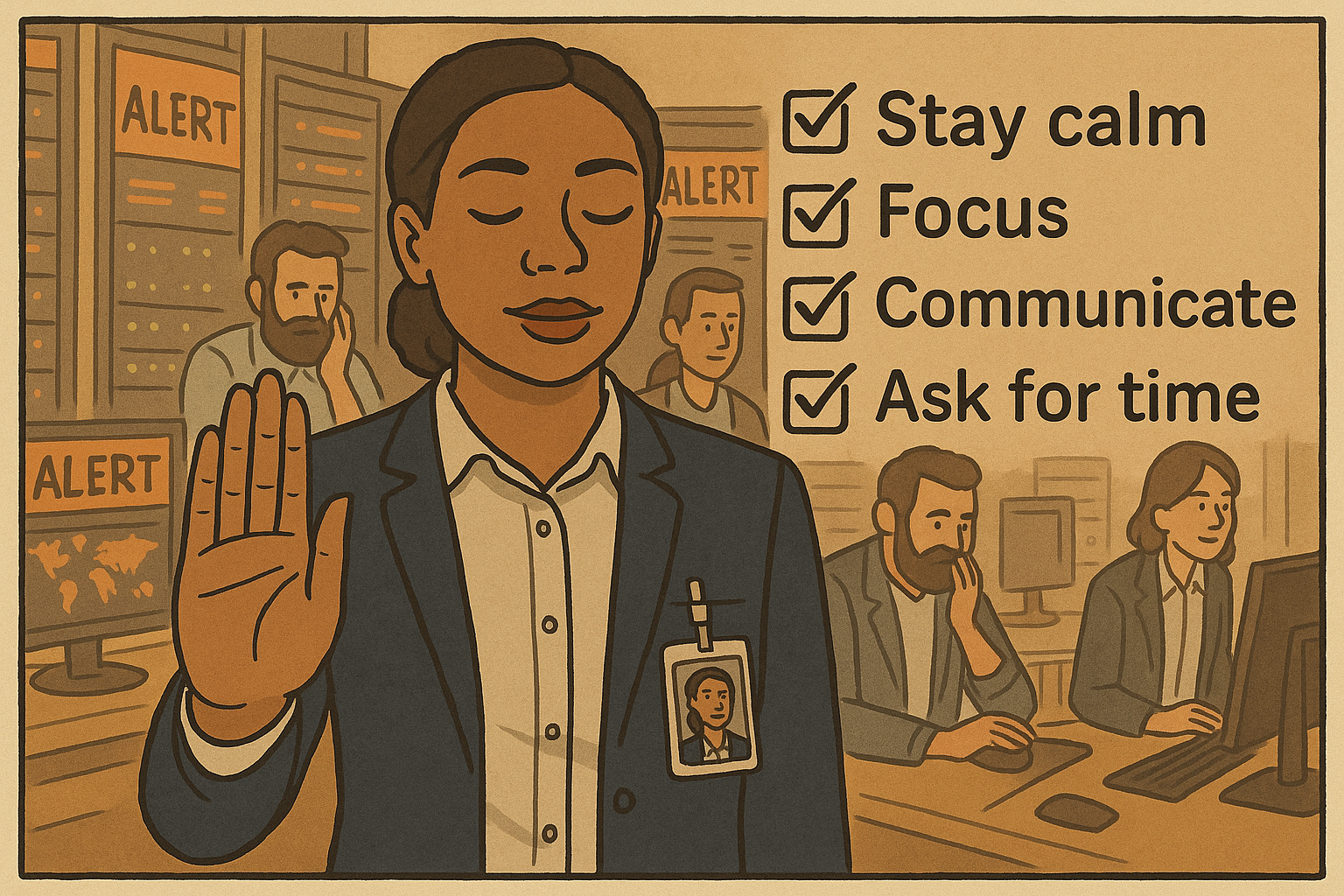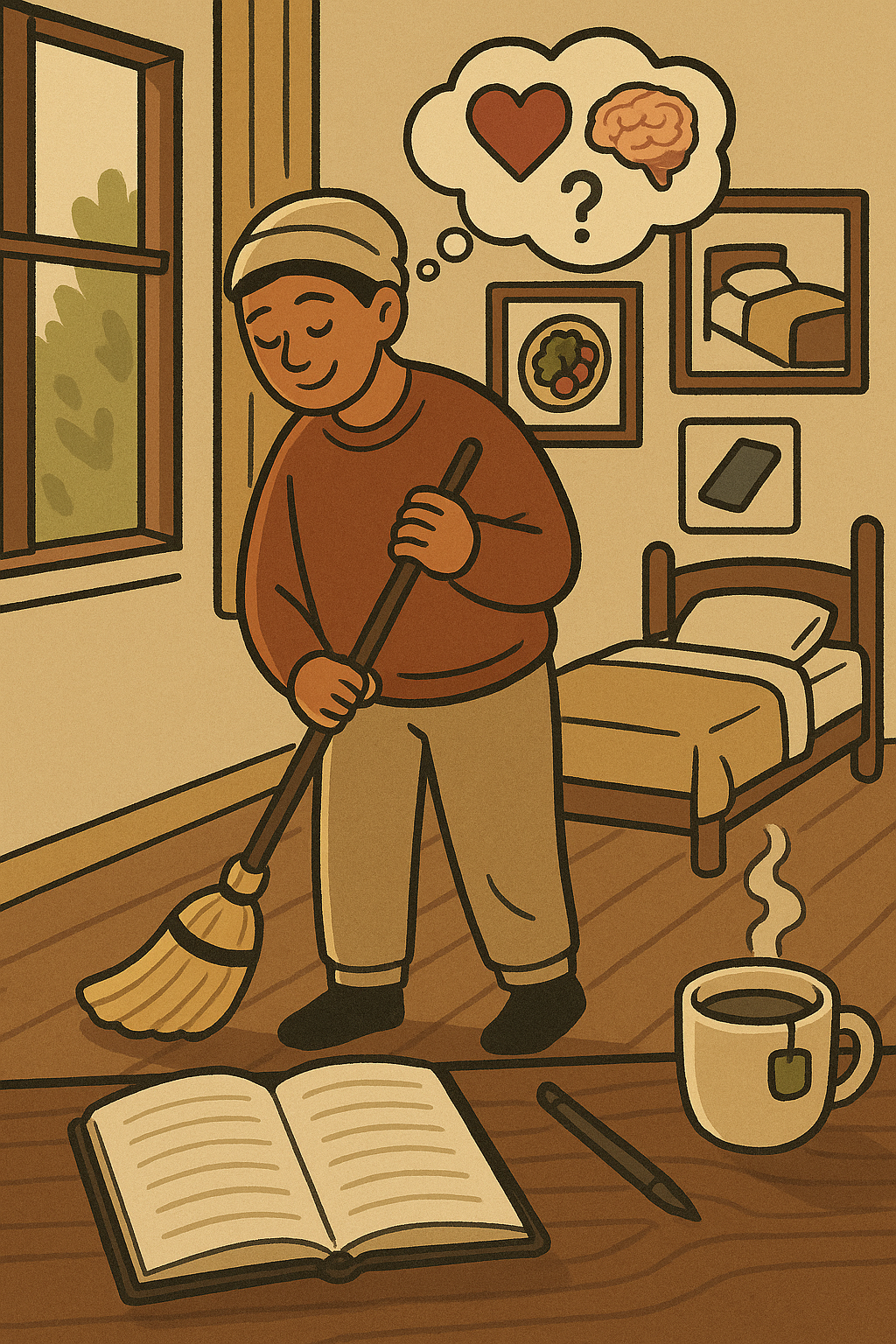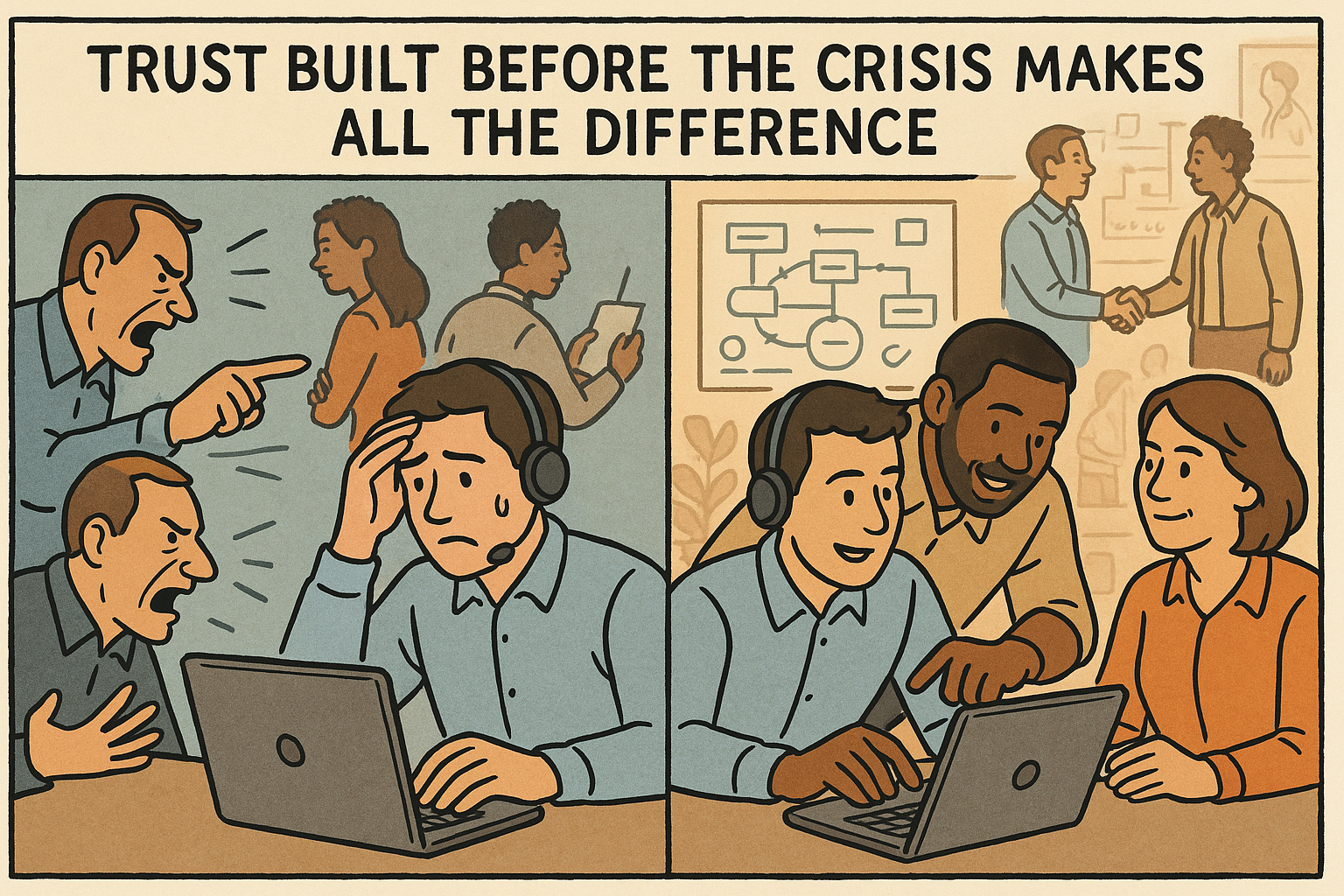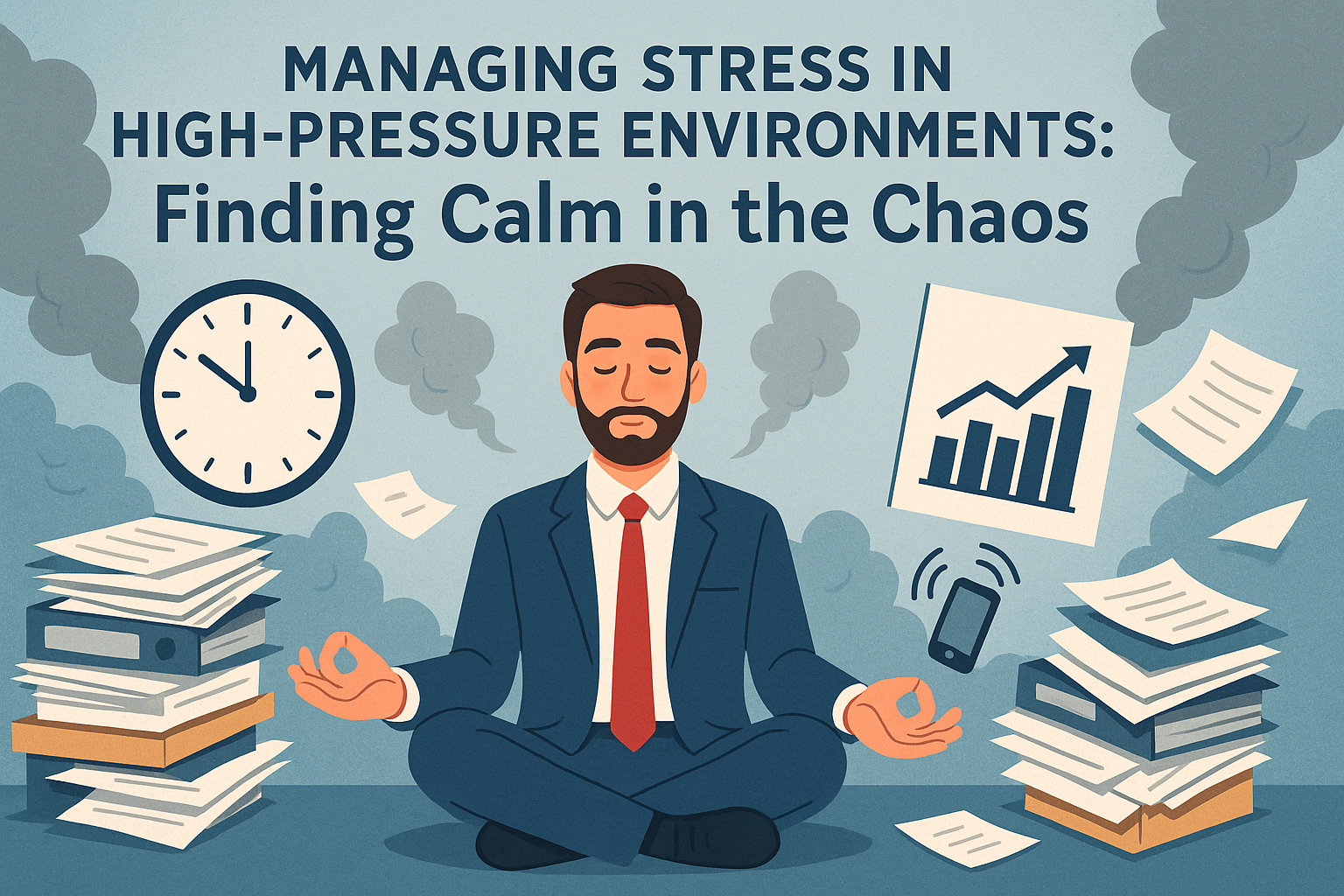Hi everyone, today I want to talk about something we all face but don’t always understand enough: how to handle stress in high-pressure environments, especially in professional life.
Stress at work is something we all deal with, especially when we’re in high-pressure situations. Figuring out how to manage stress at work, stay calm under pressure, and build resilience isn’t just nice to have — it’s crucial for your health, your performance, and how you grow in your career.
If you’ve ever been in a situation where you need to help customers with their critical systems during critical times — like a bank’s main database going down during peak hours — you know how intense it can get.
And let’s be honest: stress at work doesn’t stay at work. It affects your personal life, your mindset, your health, everything. So let’s dig into why stress happens, what it does to us, and what we can actually do about it — from personal, professional and leadership angles.
Why Does Stress Happen?
Stress mostly comes when there’s a gap between what we need to do and what we can do right now. If there’s a big gap, like a situation where the customer expects the system up in minutes, but you don’t even know the root cause yet, stress shoots up fast. And it’s worse when you’re in a toxic environment or facing unrealistic expectations.
I’ve been there myself, like when a major banking system was down between 8–10 a.m., and everyone from the CIO down was breathing down our necks. Their stress bounces right to you, and it can get overwhelming if you’re not careful.
The Impact of Stress
Short-term stress can make you angry or sad, but long-term stress is dangerous. It can affect your mental health, your memory, your heart and even your immune system. Studies show chronic stress can be worse than smoking every day.
And here’s the trap: knowing all this can make you even more stressed! But that’s not the point. The point is to understand stress how it function, so you can avoid letting it control you. Because yes, stress will happen and we can’t avoid it completely. But we can get better at dealing with it.
Staying Calm Under Pressure
When something bad happens, we naturally want to fight, run, or freeze. But as someone who’s faced many of these critical situations, I’ve learned that you can’t let yourself panic. Because if you panic, no one else will be able to solve the problem — especially not you.

So what helps?
- Stay calm and breathe.
- Focus on what you know and what you can do right now.
- Communicate clearly with your customer or stakeholders so they know you’re working on it.
- If you need more time, be honest — even saying “give me 10 minutes to find out” can buy you some space.
Building a Strong Foundation for Resilience
Short-term stress management tricks like breathing exercises or imagining a calm place are great. But in the long run, you need habits that keep you grounded:
✔ Do small positive things every day — even sweeping the floor or helping someone out can boost your mindset.
✔ Reflect on your emotions: why do you feel stressed or angry? Understanding your patterns helps you react better next time.

Simple things can make the difference!
✔ Keep a balanced lifestyle. Rest(doesn’t mean scrolling on phone, many doesn’t know effectively rest), eat well, take breaks, relax, be joyful. If you’re exhausted, everything feels worse — trust me, I’ve worked 36-hour on an issue with 2 hours of sleep, and it’s a recipe for frustration, yet sometimes life demands such things, being balance is somewhat impossible in such scenarios.
Leadership and Stress Management
If you’re a team lead or manager, it’s not just about you. You have to look after your people too. Create an open environment where they can talk about what’s stressing them out. Make sure they feel safe to share without worrying they’ll get blamed.
I’ve seen firsthand how important this is. If your team knows you’ve got their back and that mistakes are part of being human, they’ll be stronger when things go sideways. Recognize their efforts — even small wins — and give them space to express themselves. And they’ll find solutions in their own ways, we just need to support and encourage them.
One way to check if you’re a good manager is by looking at your stress levels. A good manager should be able to stay relaxed and calm even when there are hundreds of issues flying around. Sure, you might act tough or stay quiet on the outside, but deep down there should still be a sense of peace.
Relationships Matter During Stress

Your relationships with customers and colleagues can make or break these moments. If you’ve built trust before a crisis by helping them and empowering them, customers are much more understanding. And your colleagues will step up when you need help. But if you haven’t put in that effort ahead of time, everything gets harder when the pressure’s on.
Real Experiences with High-Pressure Situations
I remember one time going to a customer site where a major system was down. The customer was furious, and not entirely because of us. By staying calm, asking the right questions, and listening, I realized he was upset because of something that happened with a previous partner and also with different team from my company, not what we’d done. Instead of arguing, I focused on fixing the problem and showing our expertise. By the end, he went from angry to supportive — and he’s now one of our best allies.
But I’ve also had moments where my own stress got the better of me. Like when I was exhausted from an overnight tasks and snapped at someone who just asked to use a meeting room. That taught me a hard lesson: if you don’t manage yourself, you can hurt others and lose their trust — and it’s much harder to rebuild that trust afterward.
And there were plenty of high pressure situations that teaches us a lot.
Final Thoughts on Managing Stress
Here’s what I’ve learned: staying calm is everything. When you’re calm, you think clearly, make better decisions, and earn people’s trust. But calmness doesn’t just appear out of nowhere — you build it through conscious positive actions, self-awareness, and experience.
Understand yourself, practice emotional intelligence, and take care of your well-being. Always remember: we’re all human, and we all make mistakes. But if you stay grounded, positive, and willing to learn, you’ll handle any challenge life or work throws your way.
Thanks for reading — I hope this helps you face your own high-pressure situations with a bit more confidence.
Don’t forget to share your experiences and tips in the comments — let’s help each other build healthier, more resilient work lives!
Recommend to Read
WORK ORGANISATION AND STRESS (WHO)
Workplace stress: A neglected aspect of mental health wellbeing
